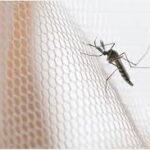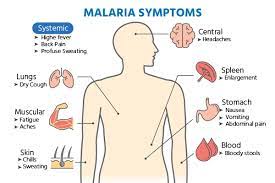The Role of Technology in Malaria Control in Africa

Malaria remains one of Africa’s deadliest diseases, killing over 600,000 people annually, most of them children under five (WHO). While traditional methods like insecticide-treated nets (ITNs) and antimalarial drugs remain critical, technology is emerging as a game-changer. From artificial intelligence (AI) to drone delivery systems, innovation is reshaping the fight against malaria across the continent.
AI and Big Data in Malaria Forecasting
One of the biggest breakthroughs in malaria control is predictive analytics. AI models use satellite data, weather patterns, and health records to predict malaria outbreaks before they happen.
-
In Kenya and Ghana, AI-powered tools are helping ministries of health allocate medicines and nets more effectively.
-
Startups are developing machine learning models that forecast mosquito breeding cycles based on rainfall and temperature.
By predicting outbreaks, African countries can shift from reactive to proactive malaria control.
Mobile Health (mHealth) Apps

With over 600 million mobile phone users in Africa, digital health apps are revolutionizing malaria prevention and treatment.
-
SMS reminders ensure patients complete antimalarial treatment.
-
mHealth apps track fever symptoms and connect patients to nearby clinics.
-
In Nigeria, apps are being piloted to guide community health workers on malaria diagnosis and drug administration.
This is bridging the gap between urban hospitals and rural villages where access to doctors is limited.
Rapid Diagnostic Tests (RDTs) and Digital Microscopy
Accurate diagnosis is key to effective malaria treatment. Thanks to technological advances:
-
RDTs now provide results in under 20 minutes, even in remote settings.
-
Digital microscopy with AI is enabling health workers with smartphones to diagnose malaria parasites more accurately than traditional slides.
-
Cloud-based platforms allow test results to be uploaded and tracked nationally, improving surveillance.
Drone Technology in Malaria Control
Drones are being deployed across Africa for:
-
Delivering medicines to hard-to-reach rural areas.
-
Spraying larvicides over mosquito breeding sites.
-
Mapping malaria hotspots using aerial imaging.
For example, in Zanzibar, drones are being tested to map stagnant water pools, helping malaria teams focus interventions more precisely.
Digital Supply Chain Management
Stockouts of malaria drugs and test kits are a huge problem. New technology platforms now track supplies in real time:
-
Blockchain systems ensure transparency in medicine distribution.
-
AI logistics predict shortages and reroute supplies before clinics run out.
-
Countries like Uganda and Rwanda are piloting smart inventory systems for malaria programs.
Genomic Research and Gene Editing
Cutting-edge science is also being applied to malaria:
-
CRISPR gene editing is being tested to create sterile male mosquitoes, reducing populations.
-
Genomic sequencing helps track drug resistance in parasites, especially artemisinin resistance emerging in East Africa.
While still experimental, these technologies could revolutionize malaria eradication in the future.
Challenges to Tech Adoption in Africa
Despite progress, barriers remain:
-
Cost – High-tech solutions are often donor-dependent.
-
Infrastructure gaps – Rural communities lack electricity and internet access.
-
Skills gap – Local health workers need training to use new tools.
Unless these challenges are addressed, the benefits of technology will remain uneven across Africa.
Conclusion
Technology is not a silver bullet, but it is a powerful weapon in Africa’s malaria fight. From AI forecasting to drone delivery, innovation is helping overcome barriers of geography, infrastructure, and access.
At HubPharm Africa, we are leveraging digital health platforms and AI tools to enhance malaria prevention, treatment adherence, and patient education. With stronger partnerships and investments, Africa can harness technology to finally turn the tide against malaria.
Written by Fawzi Rufai, Medically Reviewed by Sesan Kareem



